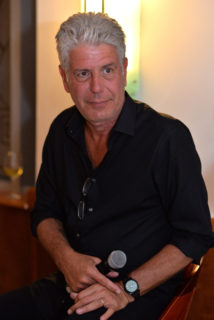530.
That’s how many people bothered to read a post I put up yesterday revealing a significant and unacceptable jump in the number of people taking their own lives in Minnesota.
Given the size of the NewsCut audience, that’s decidedly unimpressive. More than 100,000 have read about the Redwood Falls obituary.
Twitter? Let’s just say it didn’t trend.
The report, from the Centers for Disease Control, was meant to be a wake-up call to a society that could give a damn, but, like so many wake-up calls before it, we collectively shrugged.

Then Anthony Bourdain killed himself, and we started a familiar cycle of interest anew.
Appropriately, the news of his death is at the top of the news today. But why wasn’t yesterday’s CDC report? [NPR was an exception]
We work hard to shift the burden for a broken mental health system onto those who suffer.
When a famous person dies by suicide, we “remind” people to pick up the phone and call a hotline. “If he’d only reached out for help because help was available,” is a frequent refrain, as if people who suffer don’t know that and the disease doesn’t disable cognitive function. We need to do more than give out phone numbers.
National Suicide Hotline
1 800 273 8255I’ve brushed up against this darkness and I know it’s a tempting exit but REACH OUT to ANYONE. Stay on this side of it — in the light and warmth. Where you get to try again, every day.
— Patton Oswalt (@pattonoswalt) June 8, 2018
What we rarely do is tell the story of what it’s like to ask for help and the difficulty of getting it, which is a shame because the perspective would reveal an unacceptable barrier, placed there with the consent of our inaction.
We create “anti-stigma” campaigns that send the message that (a) there is one, intensifying the perception of a connection between mental health and stigma and (b) puts the burden of overcoming it on those who suffer.
“We’ll provide access to affordable mental health care by getting rid of the stigma, first,” the strategy is. It’s a recipe for a long wait for a change in attitudes that needed to take place years ago, even if it’s better than doing nothing.
And the “if only he’d asked for help” message ignores the reality that “help” — as it’s currently provided — doesn’t work for everyone, and increases the sense of failure that sends people to a bridge, a pill bottle, or a gun.
But here’s the thing: People are and have been asking for help. And too often the answer — closing a crisis hotline, rejecting a mental health clinic in your town because you’re afraid of the impact on your children, cutting funding to clinics, or turning a wellness check into a SWAT shootout — is “no.”
We will now dissect the life of Anthony Bourdain, just as we inspected that of Kate Spade before him.
It is too late for both of them.
But it’s not too late for the people whose names you’ll never know, some of whom will be successful this week in their suicide.
All we have to do is wake up, and refocus the discussion from “what was wrong with them?” to “what is wrong with us?”
Resources: How to get help in Minnesota (MPR News)
Related: I Know The Devastation Suicide Leaves Behind. I Wish I Didn’t (WBUR)
Archive: Why Robin Williams’ death has hit us so hard (NewsCut)
Archive: Bad State of Mind (MPR News)
